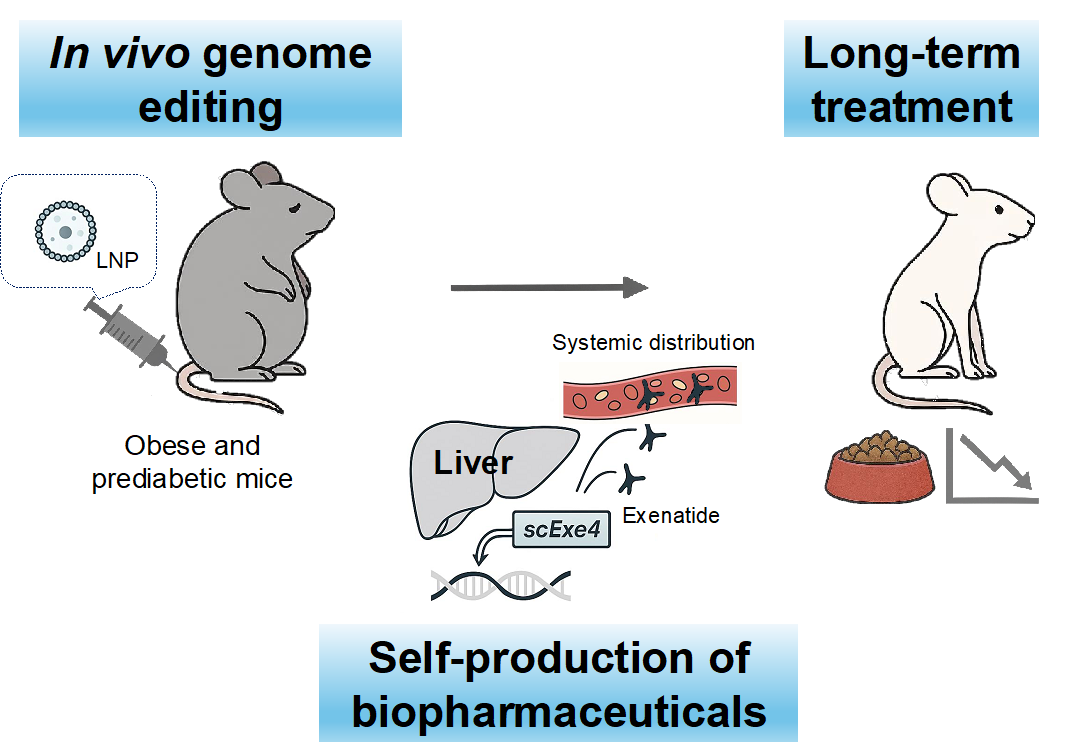Gene therapy that mimics the effects of ozempic

Weight-loss drugs, GLP-1 inhibitors, such as the famous Ozempic, have revolutionized the treatment of obesity and diabetes. The only drawback, pending their long-term effects, which are yet to be determined, is that they require regular injections to maintain their effects.
Now, a team of researchers from Osaka University (Japan) is proposing a revolutionary idea. Japanese scientists have developed a technique that allows the body to produce the compounds needed for weight loss on its own, thus eliminating the need for frequent injections.
How ? Thanks to an innovative gene therapy.
The breakthrough, published in the journal Communications Medicine , uses a modified genome editing approach that could completely change the way we treat diseases like obesity and type 2 diabetes.
Instead of correcting genetic mutations, as traditional genome editing does, scientists introduced a new gene that encodes a therapeutic protein. In this case, it was exenatide, a drug that mimics the action of glucagon-like peptide-1 (GLP-1), used to control weight and glucose levels.
Using this technique, the gene was introduced into mice with obesity and prediabetes, causing their liver cells to begin producing exenatide on a sustained basis. Levels of the drug remained stable in the blood for several months, leading to significant improvements in body weight, food intake, and glucose metabolism.
 Explanatory graphic of the innovative gene therapy
Keiichiro Suzuki
Explanatory graphic of the innovative gene therapy
Keiichiro Suzuki
"We found that the treated mice produced high levels of exenatide in their livers, creating a steady supply of the drug into the bloodstream," explains Keiichiro Suzuki, senior author of the study.
The animals receiving this innovative gene therapy ate less, gained less weight, and showed increased insulin sensitivity, without any visible side effects. Furthermore, their metabolism improved significantly compared to untreated mice.
The researchers write that the new approach represents an alternative to injectable biologic drugs, which must be administered frequently to be effective. "With a single genetic intervention, the body would be able to produce the drug for months or even years, potentially transforming the way many chronic diseases are treated," they write in their paper.
"We hope that this unique genetic treatment design can be applied to many complex diseases that don't have specific genetic causes," Suzuki adds.
This discovery opens the door to a new era in the treatment of metabolic diseases such as type 2 diabetes, obesity, and other chronic inflammatory disorders.
If the results are replicated in humans, it could mean the end of constant injections and the beginning of longer-lasting, more effective, and more comfortable treatments for patients.
abc





